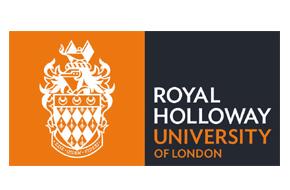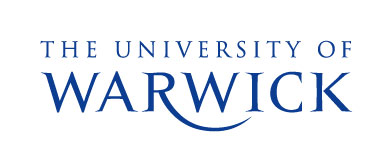Rather than a logic of differentiation, public bodies often
develop brands that look extremely similar to other brands.
This is all to say that there is a politics of branding or, if you prefer, a post-politics in which all forms of activity are unquestionably and unreflexively altered to match a corporate agenda. Is there an inevitability for universities to think of themselves as a brand, and does this converge with other supposed inevitabilities: that there should be individualised student tuition fees, that research should have corporate value, and so on? Meanwhile, the Vice Principle at Royal Holloway, Rosemary Deem, has been telling us through her research on the subject that there has been a global trend towards what she terms ‘leaderism’; this generally refers to the corporate strategies that universities pursue, which more often than not are fundamentally incoherent and not subject to critique. Again should we resist branding ourselves?
An excellent book that charts the history of public and semi-state organisations reconfigurating themselves as brands is The Rise of Brands by Liz Moor. Moor looks at organisations who fundamentally are not corporations, but nevertheless accept a corporate style of management as part of a neo-liberal process, a strategy of branding deployed as a technology or as a means for both management and government to facilitate this. This often entails a form of governmentality – meaning that all functions in the organisation now have to justify themselves according to a new means of disciplining, that all acts have to cohere around the principle of the organisation as a coherent brand and that this principle is already front-loaded with assumptions about working in a competitive environment, about clients and customers and so on. Hence we have city councils, hospitals, and universities re-defining themselves as brands. It is interesting to note that, rather than allowing organisations to distinguish each other from their competitors, so called ‘brands’ actually end up looking just like each other. In other words, public institutions undergoing privitisation internalise a need to demonstrate that they can achieve a certain level of 'professionalism' and 'best practice' and one technology for achieving this is to cohere the organisation around a brand identity immediately recognisable as adhering to conventional standards of sector professionalism. From a marketing perspective such a tendency towards uniform representations and homogeneous organisation offends against the subject's commitment to innovation and differentiation and therefore, arguably the process of branding that we witness departs from marketing logic, in fact is best understood as an instance of anti-marketing. And as demonstrated across various semi-state and public sectors, the logic of ‘leaderism’ often coincides with the appointment of chief-executive officer type leaders who command enormous salaries and who are concerned with maintaining these brand values, irrespective of how incoherent they may be.
Again, to my mind the critical issue is the relationship between brand logic and the sort of neo-liberal logic encapsulated in government policy and beyond. Do such forms of branding serve a neo-liberal agenda? If it does, we might ask is this something that we should oppose in defence of a more public minded ethos of the university, or should we embrace it either as a coping strategy in unfriendly times during which we should think of our own survival, or indeed should this be something that we should embrace as it arrives with all sorts of new opportunities, a golden moment for universities to assert their autonomy?
Up to now, I have been speaking about branding in negative terms. But it seems to me that there are also all sorts of positive opportunities that can be grasped from such discussions.
If we think of the brand as the values and meanings that are produced in the organisation and created with customers, that in the service sector market meanings and systems are co-produced with, rather than for, customers, then as lecturers we might ask what sort of university are we co-producing with our students? If so, can we insist on having a critical research identity when this contradicts the reality that we see produced in the class room? Namely, a dichotomy that emerges based on conflicting expectations of what purpose a university serves: a common sense grounded vocational approach to business problem-solving or a critical-analytic approach that asks why such problems arises in the first place.
A brand is a way of thinking about an overall organisation, and is therefore much greater than any logo or headed paper or set of staff webpages. If there is agreement that there should be a brand, then for me the critical questions become: what sort of organisation are we, what sort of organisation do we want to be, who gets to constitute and then address this 'we' that is being operationalised, what are the common spaces through which consensus can emerge and critical reflexivity be expressed and respected, does the requirement for a mutual identification with brand values offend against the very spirit of heterogeneity necessary for the intellectual survival of the university during hostile times, and can we represent and communicate values in a way that is distinctive, truthful, and attractive to prospective students and colleagues, and that can help us maintain a commitment towards developing intellect?
An excellent book that charts the history of public and semi-state organisations reconfigurating themselves as brands is The Rise of Brands by Liz Moor. Moor looks at organisations who fundamentally are not corporations, but nevertheless accept a corporate style of management as part of a neo-liberal process, a strategy of branding deployed as a technology or as a means for both management and government to facilitate this. This often entails a form of governmentality – meaning that all functions in the organisation now have to justify themselves according to a new means of disciplining, that all acts have to cohere around the principle of the organisation as a coherent brand and that this principle is already front-loaded with assumptions about working in a competitive environment, about clients and customers and so on. Hence we have city councils, hospitals, and universities re-defining themselves as brands. It is interesting to note that, rather than allowing organisations to distinguish each other from their competitors, so called ‘brands’ actually end up looking just like each other. In other words, public institutions undergoing privitisation internalise a need to demonstrate that they can achieve a certain level of 'professionalism' and 'best practice' and one technology for achieving this is to cohere the organisation around a brand identity immediately recognisable as adhering to conventional standards of sector professionalism. From a marketing perspective such a tendency towards uniform representations and homogeneous organisation offends against the subject's commitment to innovation and differentiation and therefore, arguably the process of branding that we witness departs from marketing logic, in fact is best understood as an instance of anti-marketing. And as demonstrated across various semi-state and public sectors, the logic of ‘leaderism’ often coincides with the appointment of chief-executive officer type leaders who command enormous salaries and who are concerned with maintaining these brand values, irrespective of how incoherent they may be.
More branding groupthink
Again, to my mind the critical issue is the relationship between brand logic and the sort of neo-liberal logic encapsulated in government policy and beyond. Do such forms of branding serve a neo-liberal agenda? If it does, we might ask is this something that we should oppose in defence of a more public minded ethos of the university, or should we embrace it either as a coping strategy in unfriendly times during which we should think of our own survival, or indeed should this be something that we should embrace as it arrives with all sorts of new opportunities, a golden moment for universities to assert their autonomy?
Up to now, I have been speaking about branding in negative terms. But it seems to me that there are also all sorts of positive opportunities that can be grasped from such discussions.
If we think of the brand as the values and meanings that are produced in the organisation and created with customers, that in the service sector market meanings and systems are co-produced with, rather than for, customers, then as lecturers we might ask what sort of university are we co-producing with our students? If so, can we insist on having a critical research identity when this contradicts the reality that we see produced in the class room? Namely, a dichotomy that emerges based on conflicting expectations of what purpose a university serves: a common sense grounded vocational approach to business problem-solving or a critical-analytic approach that asks why such problems arises in the first place.
A brand is a way of thinking about an overall organisation, and is therefore much greater than any logo or headed paper or set of staff webpages. If there is agreement that there should be a brand, then for me the critical questions become: what sort of organisation are we, what sort of organisation do we want to be, who gets to constitute and then address this 'we' that is being operationalised, what are the common spaces through which consensus can emerge and critical reflexivity be expressed and respected, does the requirement for a mutual identification with brand values offend against the very spirit of heterogeneity necessary for the intellectual survival of the university during hostile times, and can we represent and communicate values in a way that is distinctive, truthful, and attractive to prospective students and colleagues, and that can help us maintain a commitment towards developing intellect?











